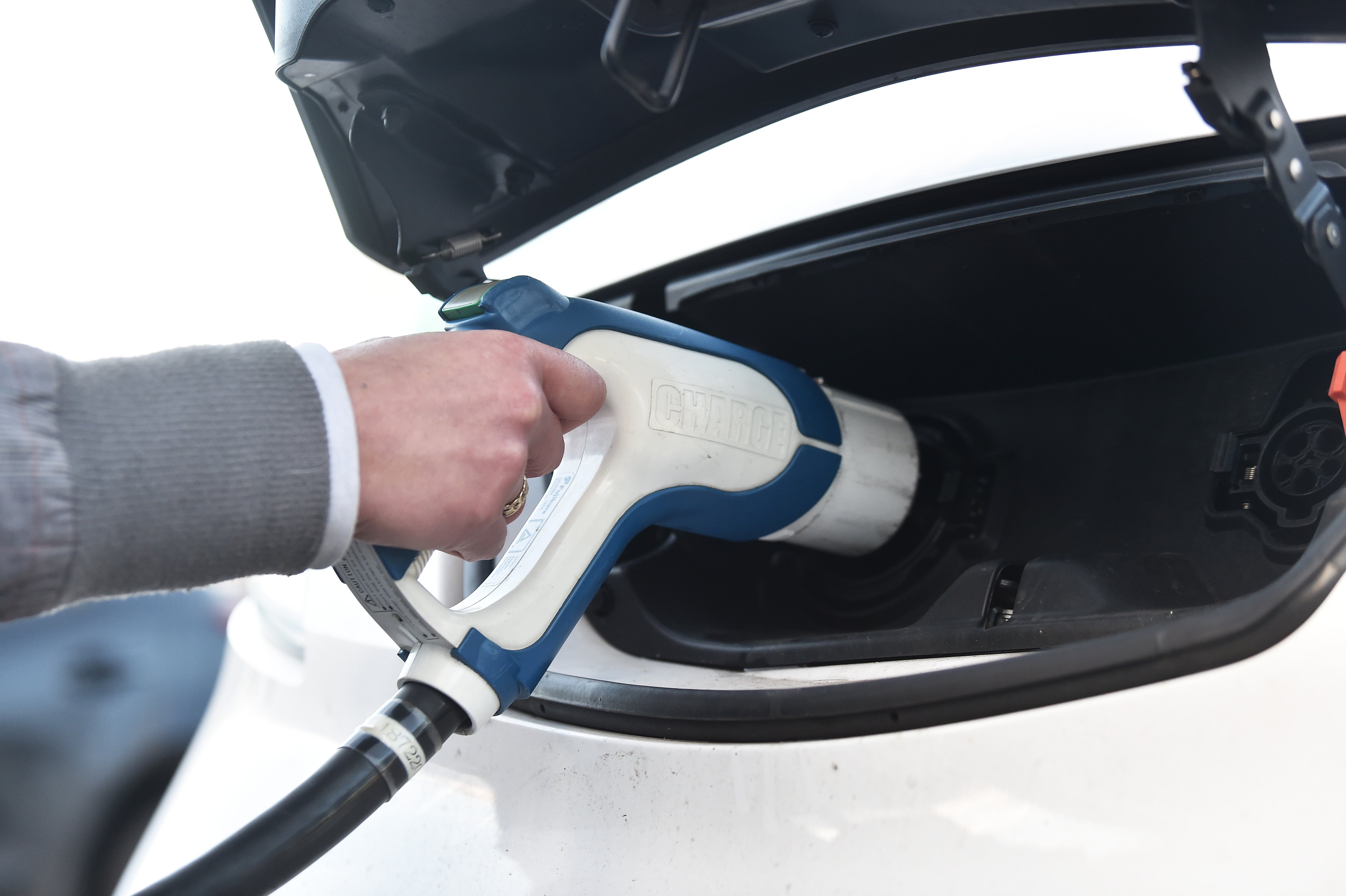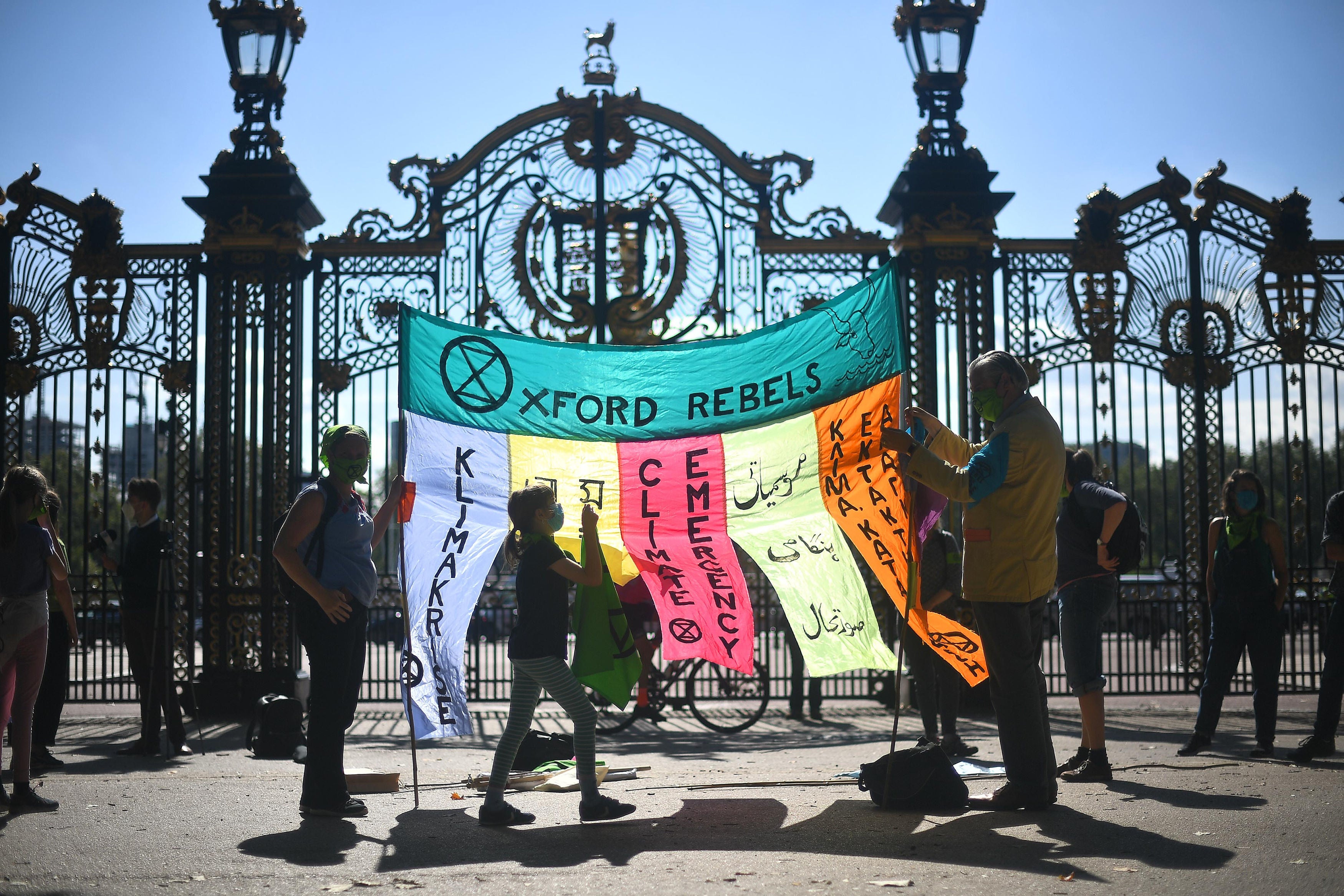UK climate plan: Boris Johnson’s ‘green industrial revolution’ labelled ‘inadequate’
Follow the latest updates
Your support helps us to tell the story
From reproductive rights to climate change to Big Tech, The Independent is on the ground when the story is developing. Whether it's investigating the financials of Elon Musk's pro-Trump PAC or producing our latest documentary, 'The A Word', which shines a light on the American women fighting for reproductive rights, we know how important it is to parse out the facts from the messaging.
At such a critical moment in US history, we need reporters on the ground. Your donation allows us to keep sending journalists to speak to both sides of the story.
The Independent is trusted by Americans across the entire political spectrum. And unlike many other quality news outlets, we choose not to lock Americans out of our reporting and analysis with paywalls. We believe quality journalism should be available to everyone, paid for by those who can afford it.
Your support makes all the difference.Boris Johnson’s new 10-point climate action plan, which he launched on Tuesday evening, has been labelled “inadequate”, with some critics suggesting responses to the emergency have been stronger in European countries such as France and Germany.
Green Party co-leader Sian Berry tweeted to say the strategy was “inadequate”, and shadow secretary of state for energy and climate change, Ed Miliband, said: “The funding in the government's long-awaited 10-point plan doesn't remotely meet the scale of what’s needed … it pales in comparison to the tens of billions committed by France and Germany”.
Meanwhile, Joe Biden is being called out for handing one of the Democratic Party’s top recipients of fossil fuel industry money a top White House position - focusing in part on climate issues.
Representative Cedric Richmond, a Democrat from Louisiana, has received about £256,500 from donors in the oil and gas industry in his time. He has also repeatedly broken with Democrats on major climate and environmental votes.
See below for how our live coverage unfolded.
Hello, and welcome to The Independent’s rolling coverage of the climate crisis.
Johnson’s 10-point plan is promising but key details remain unclear
A big financial boost for tackling emissions in Britain’s homes and electric cars, and a ban on the sale of new petrol vehicles by 2030. These are among the more exciting elements of Boris Johnson’s new 10-point climate plan, the first details of which were set out this evening.
Crucially, the confirmation of a 2030 ban on petrol and diesel vehicles puts us ahead of France and Spain, though Norway has a 2025 goal.
However, environmental analysts and campaigners said that key “gaps remain” in Mr Johnson’s new plan, which is aimed at marking “the beginning of the UK’s path to net zero” ahead of its role as host of next year’s UN climate talks, according to the government.
Our climate correspondent, Daisy Dunne, reports:

Boris Johnson’s 10-point climate plan is a promising start, but key details remain unclear
One in five people affected by climate disasters in past decade
Some 1.7 billion people across the world were affected by extreme weather disasters in the past decade, a new report has found.
Climate and weather-related disasters killed 410,000 people in the past 10 years, with those living in Asia and Africa being the most affected by such events, according to the review by the International Federation of the Red Cross.
This means that since the 1990s, the number of recorded climate and weather-related disasters has risen by an average of 35 per cent. Such events are increasing more than other types of disasters, reports Daisy Dunne:

One in five people affected by climate disasters worldwide in past decade, says report
What has Johnson actually promised in the new plan?
Incase you missed the news last night, Boris Johnson has set out plans for green investment over the coming decade, including a target to generate enough offshore wind to power every home in the UK and a ban on new petrol and diesel cars and vans from 2030.
The PM’s long-awaited 10-point plan for a “green industrial revolution” also promised the UK’s first hydrogen-powered town, four carbon capture “clusters” to suck 10 megatons of carbon dioxide out of the atmosphere and a new generation of advanced nuclear reactors.
Our political editor, Andrew Woodcock, has all the fine details:

Green plan brings ban on petrol cars forward to 2030 and promises UK’s first hydrogen-powered town
Green groups weigh in on Johnson’s pledges
A number of green groups have also commented on the new 10-point plan, laid out by the prime minister last night.
Some felt the plan gave little clarity on how the aims would be reached - financially and practically - while others felt it was a massive step in the right direction, particularly with the PM promising thousands of new jobs.
Here’s a roundup of some of the groups’ reactions:
Craig Bennett, chief executive of The Wildlife Trusts, said:
“We have to start tackling the climate and nature crises together but this announcement doesn’t do it. It’s good to see nature in the list but if the government is serious about tackling climate change and restoring nature we need to do far more than plant trees. … Any positive action is undermined by the government’s determination to press on with extremely damaging activities such as the £27bn road building programme and the failure to ban peat burning – these and more sabotage hopes of a green industrial revolution.”
Mike Childs, head of policy at Friends of the Earth, said:
“Despite a number of positive commitments, the PM’s 10-point plan falls far short of the ambitious policy overhaul needed to demonstrate real global leadership on the climate crisis. A much bolder approach is needed if the UK is to create the hundreds of thousands of new green jobs and other benefits that building a cleaner, safer future will bring.
“We have the ability to build a zero-carbon future, but we need tough and urgent action from our politicians at all levels - and with the world spinning towards catastrophic climate change we don’t have time to waste.”
Shaun Spiers, executive director of Green Alliance, said:
“It’s great to see the prime minister showing leadership ahead of the Glasgow climate summit next year by putting the industries of the future at the heart of his economic strategy. There’s still plenty of detail to examine, but these plans include bold and ambitious steps that will create jobs and sustain communities in towns and cities across the UK for generations, as well as protecting the planet. All eyes are now on the Treasury to deliver on these promises.”
Tanya Steele, chief executive at WWF-UK, said:
“Today the government has fired the starting gun on the action we need to see to really transform our transport, homes and economy to overcome the climate and nature emergency. The more we drive down emissions now, the more we will reap the rewards not just in tackling this crisis but in good jobs, cleaner air and a competitive edge for UK businesses in the growing global clean economy.
“We now need the chancellor to live up to the ambition expressed today through a Spending Review that tests every line of public spending to ensure it’s compatible with meeting our climate goals.”
Dr Jonathan Marshall, head of analysis at the Energy and Climate Intelligence Unit (ECIU), said:
“These points tick off a number of the major policy decisions needed to get the UK demonstrably back on track to its net zero target. Strong support for cleaning up transport, industry and home heating – areas long ignored by the government – will help deliver on the urgent need to cut emissions shared by people in all corners of the UK.
“However, gaps still remain. Onshore wind and solar energy remain unsupported, long shots such as modular nuclear power and direct air capture may not pay off, and natural solutions to climate change – planting trees and restoring peat bogs – remain largely overlooked and ignored.”
Greenpeace UK’s head of politics, Rebecca Newsom, said:
“This landmark announcement signals the end of the road for polluting cars and vans and a historic turning point on climate action. While switching to electric vehicles is no panacea, ditching new polluting petrol and diesel in 2030 could put the government back on track to meeting its climate commitments.
“It’s a shame the PM remains fixated on other speculative solutions, such as nuclear and hydrogen from fossil fuels, that will not be taking us to zero emissions anytime soon, if ever. But although there are some significant question marks and gaps, overall this is a big step forward for tackling the climate emergency.”
Just £4bn of new money for PM’s green plan, business minister admits
It seems Boris Johnson’s plan is already faltering as a minister admitted this morning that just £4bn of new money has been found for the PM’s new climate emergency plan – echoing the criticism of green groups.
Environmental campaigners have welcomed the ambition behind the 10-point package, but immediately cast doubt on the claim that £12bn would be spent on slashing carbon emissions.
When pressed, Alok Sharma, the business secretary, admitted: “Yes, around £4bn of this is new money – the other money is money that has been pledged previously or, indeed, at the last Budget.”
Rob Merrick, our deputy political editor, has all the details:

Just £4bn of new money for Boris Johnson’s climate emegency plan, Cabinet minister admits
Caroline Lucas: PM’s strategy ‘fails to rise to gravity of this moment’
Green MP Caroline Lucas has spoken out again regarding Boris Johnson’s new environmental plan, saying it “fails to rise to the gravity of this moment”.
Ms Lucas told BBC Radio 4's Today programme this morning: “When you put it the context of the scale of the climate and nature emergencies face, and indeed the scale of job emergencies we face, then it's nowhere near ambitious enough.
“It's not urgent enough, it's not bold enough - it completely fails to rise to the gravity of this moment.”
She also said the scale of the government’s new investment is just a “fraction” of what is needed, and that the strategy is “inconsistent” with regards to its protection of nature.
“There are individual aspects to welcome but, as a whole, it doesn't add up to the kind of ambitious strategy that we need,” she told Radio 4.

Paper wine bottles designed to reduce emissions go on sale
In other climate-related news, you no longer need to feel guilty for buying wine - at least not in Scotland.
Shops in Scotland have become the first places in the UK to stock wine in paper bottles in a move which aims to reduce the carbon footprint associated with glass bottles.
Three of the country’s off licences will sell the Italian wine in its new lightweight, recyclable container, which the manufacturers say has a carbon footprint up to six times (84 per cent) lower than a glass bottle and more than a third less than a bottle made from 100 per cent recycled plastic.
The Independent’s Harry Cockburn has the story:

Paper wine bottles designed to reduce emissions go on sale for first time
In light of the UK’s new green plan, which looks to ban the sale of petrol cars by 2030, key figures within the automative industry are beginning to wonder what this means for their future.
The PA news agency has answered 10 key questions on the policy, to explain what it means for motorists moving forward.
When was the ban initially due to come into force?
In July 2017, Theresa May's government announced the ban would be implemented in 2040.
What changed?
Boris Johnson has decided moving the ban to 2030 is vital for the UK meeting its commitment to reach net-zero carbon emissions by 2050.
What will replace the banned cars?
Bringing the ban forward by 10 years will speed up the development of electric vehicles, which are the most common type of alternatively-fuelled vehicle.
How do electric cars work?
Pure electric cars are powered by an electric motor using energy stored in batteries, and do not produce emissions from the tailpipe.
How popular are electric cars?
Figures published by automotive trade body the Society of Motor Manufacturers and Traders (SMMT) show pure battery-electric new cars held a 5.5 per cent share of the new car market in the first 10 months of the year.
Why are they not more popular?
Electric vehicles are generally more expensive than conventionally-fuelled models, largely due to the cost of the battery. There have also been concerns that drivers could run out of power and be left stranded by being unable to access a charging point mid-journey.
Where can you charge a battery?
Many owners of electric vehicles charge their vehicles overnight at home. But drivers without off-street parking - and those embarking on long journeys - often have to rely on public charge points, such as at supermarkets, on pavements and motorway services.
How quickly is the charging network growing?
More than 1,200 charging devices for public use were installed in the UK between July and September, recent Department for Transport (DfT) analysis shows. That meant 19,487 devices were available on 30 September, up 7 per cent from three months earlier.
What impact will the 2030 ban have on electric cars?
The policy is likely to reduce the cost of owning and running electric vehicles, as they become more widespread. But it could also lead to people who want to stick to a petrol or diesel model choosing a used car - which would not be banned under current plans - rather than a new electric one.
What about hybrid vehicles?
The ban on the sale of new hybrid cars and vans has been maintained at 2035 for those that can travel a “significant distance” with no carbon emissions.

Additional reporting by PA
Join our commenting forum
Join thought-provoking conversations, follow other Independent readers and see their replies
0Comments